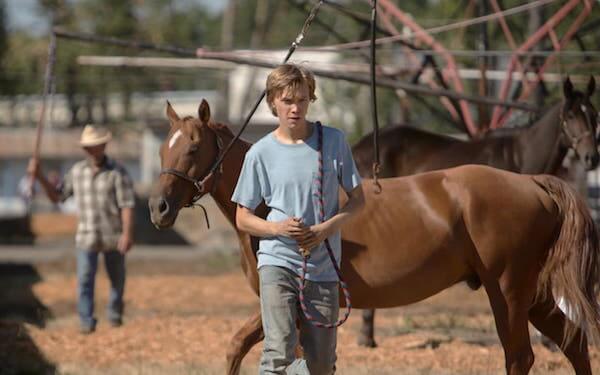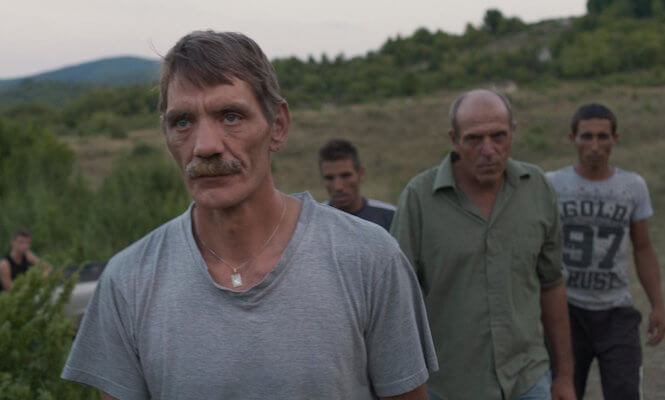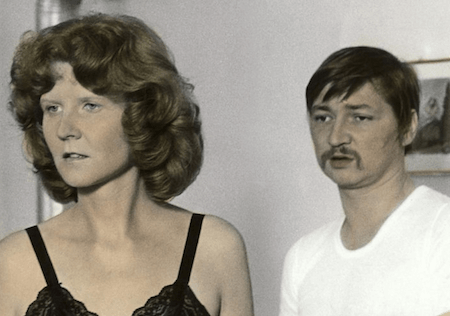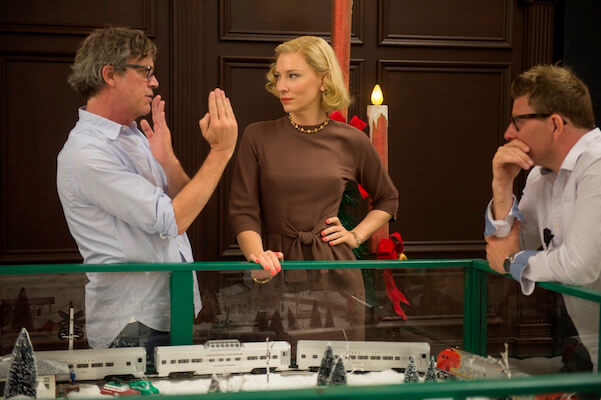Richie Jen in Arvin Chen’s “Will You Still Love Me Tomorrow?” | FILM MOVEMENT
A bittersweet romantic comedy-drama, the wonderful “Will You Still Love Me Tomorrow?,” set in Tapei, features a handful of gay and straight characters unhappy in their lives and relationships. Screenwriter and director Arvin Chen is straight but displays impressive sensitivity toward all his characters. In fact, in a recent Skype interview, Chen said people often assume he is gay.
“I don’t think making this film helps,” he joked.
The filmmaker grew up in the San Francisco Bay area, but now lives in Taipei. He has had gay friends most of his life, he explained, citing those relationships as part of his motivation in making this film. Chen said he modeled one of the film’s queer characters — “down to their dialogue” — on one of his best friends.
Arvin Chen looks at unhappy lives and finds the magic
“Will You Still Love Me Tomorrow?” concerns Weichung (Richie Jen), a married optometrist, whose wife Feng (Mavis Fan) wants to have a second child. At his sister Mandy’s (Kimi Hsia) engagement party, however, he reconnects with his old friend Stephen (Lawrence Ko), a gay man. Weichung, glum about his life, soon finds himself reevaluating same-sex feelings he had repressed and questioning his marriage — especially when he meets Thomas (Wong Ka-lok), an adorable flight attendant. When Mandy breaks off her engagement, the jilted fiancé, San-San (Stone), enlists Stephen and his queer friends to help him win her back.
The film focuses on each character grappling with a pivotal romantic crisis. Chen explained, “Weichung thinks he has moved on from being gay, but that affects his wife’s story. Does he love her? And what will she do when he can’t love her? His sister is also struggling with commitment and her romance being compromised.”
Despite the unhappiness the characters contend with, Chen’s film is not choked with romantic despair but instead manages a buoyant feel based in part on the use of fantasy elements, such as when broken-hearted Mandy gets relationship advice from a soap opera actor who visits her in her apartment. The director deliberately subverts the tropes of traditional romantic comedies, which is what distinguishes his film and makes it as charming as it is wistful.
“I try to find humor in situations that are not inherently funny,” Chen explained, “but also try to find sadness in scenes that are not inherently sad… These characters live in a boring world and have mundane jobs, but this film says that fantastical things could happen.”
One such moment of magical realism occurs in a pre-credit sequence where Weichung’s boss literally flies away with an umbrella. Another sequence — Chen’s favorite — has Feng singing the title song in a karaoke bar. What begins as a solo performance soon turns into a full-blown musical number complete with backup singers. Like many of the scenes in the film, this episode is melancholic, sunny, and fantastical all at the same time.
Chen also infuses his entire film in bright, colorful visuals that are a wink and a nod to 1950s Hollywood melodramas and musicals. Referring to Todd Haynes’ 2002 “Far From Heaven,” an homage of sorts to the films of Douglas Sirk, he said, “‘Heaven’ is more melodrama, ours is goofy comedy, but the same aesthetic works in this story. The colors, music, and cinematography are much more from this older era.”
Chen shows how Weichung struggles as he tries to conform to Taiwanese social pressure to be married and have a family. Stephen, openly gay, is less concerned about norms and expectations, but he does, after all, find a loophole by marrying a lesbian. He is the film’s happiest character, and though Ko comes across as something of a flamboyant stereotype, Chen emphasized that he wanted Stephen to be the opposite of the conservative Weichung.
“Stephen knows exactly who he is and he is completely realized as a person,” the filmmaker said. “He has no conflicts.
Stephen’s gay friends, who help the heartbroken San-San, act as the film’s Shakespearean chorus. “Like Stephen, they are above the story and happy with who they are,” Chen explained. “They are dispensing advice rather than struggling with their own problems.”
The filmmaker said he did not specifically cast straight or gay actors for any of the roles.
“There are not many openly gay actors in Asia,” Chen said. “We had to worry about straight actors who wouldn’t want to do the film. All the main characters playing gay are straight, with the exception of one or two supporting roles.”
Chen hopes that queer audiences appreciate his film and his characters, even as he acknowledged they might identify most with Feng because her story is perhaps the most moving of the film. She gives an extra dimension to her husband’s coming out drama.
That said, Weichung’s emotional conflict is never handled anything but respectfully. Chen’s aim was to recapture the adolescent feelings of love Weichung once felt for men. His new object of affection, Thomas, functions as an attractive and possibly unattainable fantasy character. Still, Thomas makes Weichung literally float in another of the film’s wonderful magical scenes.
His storyline in particular — and the film’s lush romantic qualities in general — will resonate with anyone who has sought love or struggled for personal happiness. “Will You Still Love Me Tomorrow?” is a film romantics will embrace.
WILL YOU STILL LOVE ME TOMORROW? | Directed by Arvin Chen | Film Movement | Opens Jan. 17 | Quad Cinema, 34 W. 13th St. | quadcinema.com



































